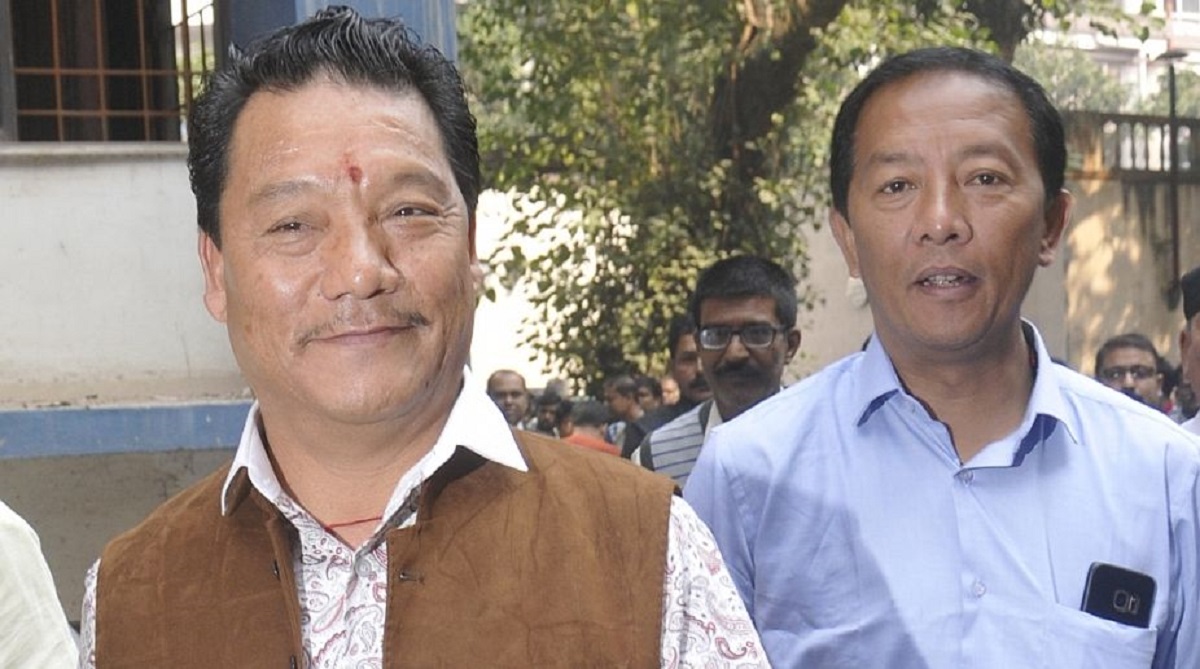In the immediate aftermath of last Saturday’s populist grandstanding in Kolkata, the hot air that blew against the Bharatiya Janata Party has had an impact on the snow-covered hills of West Bengal. Political equations are bound to change in the four Lok Sabha constituencies of North Bengal as the Gorkha Janmukti Morcha (GJM) has let it known that it will sever its decade-long association with the BJP-led National Democratic Alliance. The electoral prospects of Surendrajeet Singh Ahluwalia, the BJP’s MP from Darjeeling ~ a crucial seat in the Lok Sabha ~ and a Union minister of state, are now considerably dimmed. Since the 2009 Lok Sabha election, the Darjeeling seat has provided the BJP with a base in the region, one that has been restive for the past three decades over the statehood issue. It is a measure of the region’s electoral dynamics that no party can hope to win the Darjeeling seat without the Morcha’s support. In a sense, the Morcha president, Binay Tamang, who made the announcement, has carried the BJP-GJM rift to its logical conclusion. It would be pertinent to recall that only last November, Mr Ahluwalia, as the BJP’s national vice-president, had claimed that Tamang had joined hands with the Trinamul Congress and that he “wouldn’t be essential to the BJP for the 2019 elections”. Tamang’s disenchantment with the BJP can additionally buttress the prospects of Trinamul not the least because Mamata Banerjee has afforded a measure of loose autonomy for the Hills with the formation of the Gorkhaland Territorial Authority (GTA). Significant, therefore, is the Chief Minister’s visit to Darjeeling, which is doubtless more critical than her routine district tours. Notably, Tamang and the Morcha general secretary, Anit Thapa, had attended the rally at Brigade Parade Ground. The Morcha’s disenchantment with the BJP is of a piece with the presence of Yashwant Sinha, Arun Shourie, and Shatrughan Sinha at the concert of the Opposition. In his letter to Miss Banerjee, within 24 hours of the rally, Tamang has expressed his willingness to join what he calls a “third party alliance”, though the concept remains amorphous just yet.
One major reason behind the Morcha’s parting of the ways with the BJP is that the ruling party at the Centre was generally muted in its response when violence over statehood had roiled Darjeeling for close to six months in 2016. Of course, statehood will call for the concurrence of the Centre, the State, Parliament, and the Assembly. Ever since the mid-1980s and irrespective of the party in power, the political class has been loath to rock the boat in a volatile part of the state. Short of the consummation devoutly wished for, the Morcha’s “third front” will be expected to grant land rights to workers of tea gardens and cinchona plantations, tribal status for eleven class groups, linguistic minority status for the Nepali language, and benefits under the Union ministry of development of north-eastern region (Doner).
Advertisement











